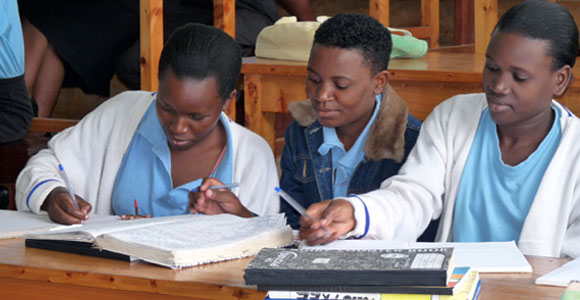Our Work

“I feel the capacity to care is the thing which gives life its deepest significance.” - Pablo Casals
Basic Scholarship Model
-
Nurse scholarship recipients (“Gretta Scholars”) will enter into nursing programs in their country’s system of education.
-
Gretta Scholars will be fully supported for a maximum of four years based upon satisfactory completion of each year’s training program.
-
Each scholarship will provide its recipient with an annual tuition, living allowance, books, school uniforms, shoes, and clinical supplies.
-
To honor the obligations of their scholarship agreement, graduating scholars will serve in their country’s clinics and hospitals for a predetermined period of time commensurate with each year of academic assistance.
Monitoring & Evaluation
OUR PLAN: Stewardship of the project in country is assured through the oversight of a National Advisory Committee to include Gretta Foundation staff, national nursing association (NNA) leadership, academic nursing program representatives, and the Ministry of Health.
Their charge is the careful monitoring and evaluation of activities of the office of the Country Coordinator in three areas: 1) monitoring the Foundation’s project management, 2) financial accountability, and 3) monitoring and supporting the Gretta Scholars.
Under the oversight umbrella of the Committee, the Country Coordinator is responsible for programmatic implementation and oversight through the screening of applicants and determination of scholarship selection, monitoring of programmatic activities and the distribution of funds, and the adherence to scholarship obligations.
The Gretta Foundation is meticulous in ensuring that all funds reach the NNAs, appropriate institutions, and Gretta Scholars for which they are intended with financial and programmatic accountability demonstrated through strict financial application, program management, and scholar progress reporting.
As we are early in our programmatic development, all work in-country is being done by committed volunteers in the NNA, the Minstry of Health, and participating educational institutions.
WHY IN-COUNTRY?
- In-country provides an education that is more relevant to the nursing scholar’s community dynamics.
- In-country mitigates skill migration. Those educated in-country are less inclined to seek work elsewhere versus those educated out-of-country.
- It is more cost effective to educate in-country. Just the cost of an airline ticket to the US could pay for as much as two academic years of nursing education in Malawi, Africa.
